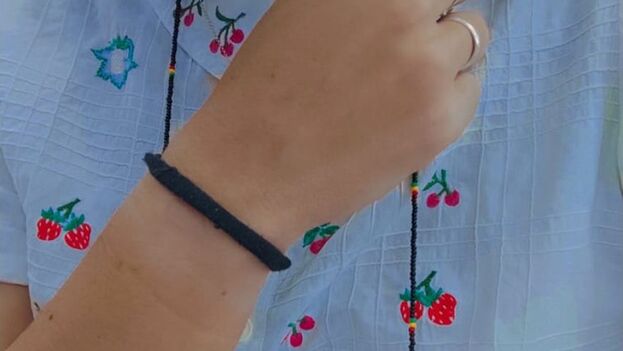
14ymedio, Yoani Sánchez, Generation Y, Havana, 8 March 2023 — Gladys lives in Caibarién, a small coastal city in the center of Cuba. Two months ago, her son left with other young people on a rustic raft to try to reach the United States. She since then she has heard nothing from them. A teacher by profession and retired a decade ago, the woman spends her hours checking social networks and calling the family of the other disappeared rafters to find out if they have any news. This March 8, International Women’s Day, will be longer than usual for her: without celebrations or laughter.
“There, that’s where they killed her,” says a resident of Camalote, in the province of Camagüey, when someone inquires about 17-year-old Leidy Bacallao Santana. On February 3, the young woman sought refuge at the police station in the face of threats from her ex-boyfriend, but he chased her and ended up killing her with a machete in front of the uniformed officers. Since the beginning of the year, 16 Cuban women have died in sexist attacks in a country where official propaganda refuses to recognize the femicides that leave so many families in mourning. From the Government, the only stories narrated are those of happy woman, fulfilled and grateful for the system.
Wearing her white coat, Danurys leaves every morning for her job at a doctor’s office. She graduated just a few months ago and dreams of later doing a specialty in pediatrics. This week she has not had anything for breakfast despite the fact that the salaries in the Public Health sector are among the highest in the country. The devaluation of the Cuban peso and the rise in the price of basic products, together with the chronic shortages and the productive inefficiency of the country, mean that a piece of bread, a glass of milk or a sip of coffee have become unaffordable for the pockets of many.
The young woman from Galena does not want to pack her bags and leave, as more than 350,000 Cubans did last year, but she does not know how much longer she will be able to cope with material hardships and low salaries. She doesn’t even plan to have children in the coming years: “Giving birth here, no, that’s clear to me,” she concludes categorically.
One hundred years ago, the grandmothers of Gladys, Leidy and Danurys took to the Cuban streets demanding their right to vote, they celebrated having achieved the first Divorce Law on the Island after decades of demands, and they fought for labor inclusion and salary dignity. During the first half of the 20th century, the feminist movement on the Island achieved important reforms in the Civil Code and significant demands regarding marriage, maternity, study and work. They were not easy conquests. Many of them spent their tears and their energies at rallies, conferences and public protests, but significantly paved the way.
This year, a group of Cuban feminists decided to deliver a letter to Parliament requesting permission for a peaceful demonstration. The National Assembly did not accept the letter and some of these women were subsequently harassed and detained. The repression has forced them to launch another initiative: to wear a black ribbon on their hands during this day as a sign of mourning, against femicides and in favor of a Comprehensive Law that protects women from sexist violence. A “virtual march” is being organized on social networks to replace the physical demonstration vetoed by the ruling party. Gladys, Danurys and Leidy’s relatives will have to settle for showing their indignation on the internet. At the moment their demands are only allowed in the digital space, but one day they will recover the streets. Almost there.
_____________
Editor’s Note: This text was originally published by Deutsche Welle ‘s Latin America page .
____________
COLLABORATE WITH OUR WORK: The 14ymedio team is committed to practicing serious journalism that reflects Cuba’s reality in all its depth. Thank you for joining us on this long journey. We invite you to continue supporting us by becoming a member of 14ymedio now. Together we can continue transforming journalism in Cuba.
